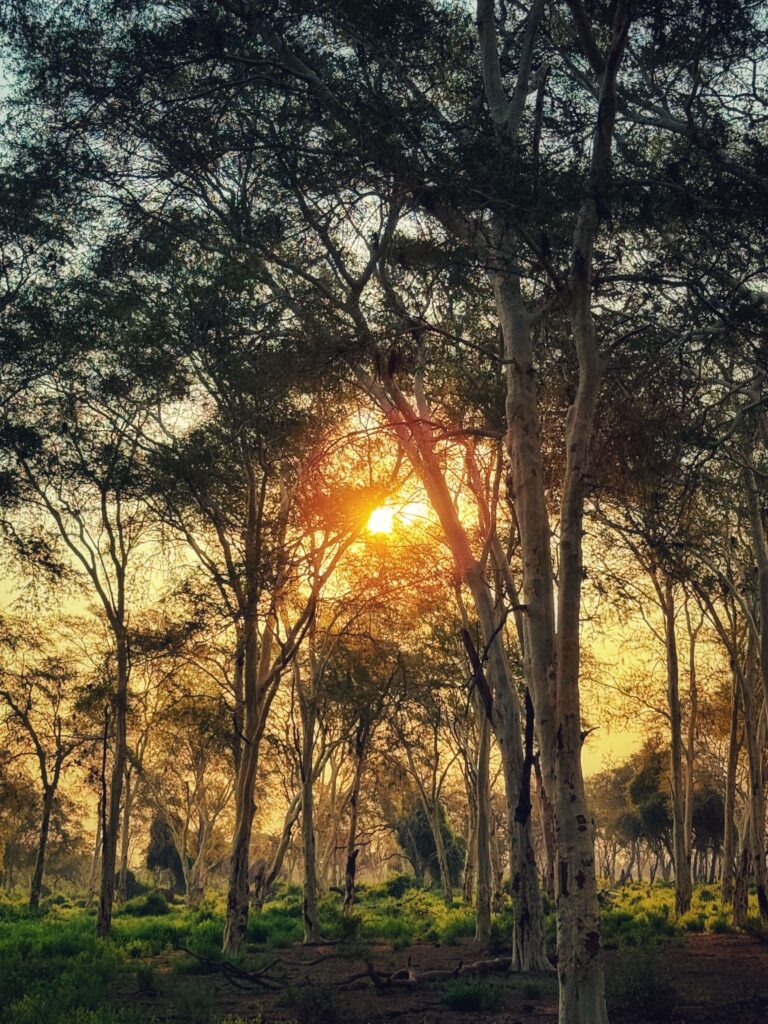The adventure of Pafuri begins for me weeks before I even set foot on African soil. In Munich, I meet Craig Parvess, Marketing Manager of RETURN Africa — calm, quick-witted, with a knowing smile — who prepares me for what lies ahead.
“Gas stations are few and far between,” he says. “Keep your tank full, start early, make use of the day — three hundred kilometers through Kruger may not sound like much, but you never know what might cross your path.” Then, half-joking, half-serious, he adds: “If you see a sign that says No Entrance — do the opposite. That’s where the camp is.” Armed with a roughly sketched map, I say goodbye to Craig and set off for Pafuri — a journey filled with equal parts respect and anticipation.
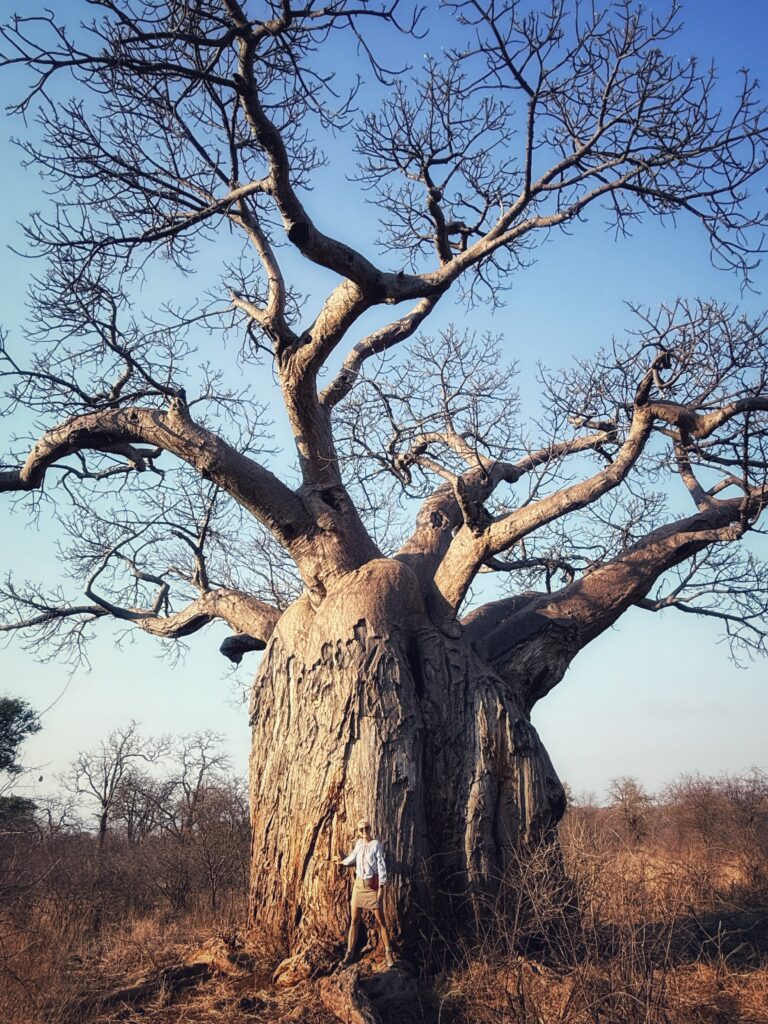
It’s ten past nine when I fill the rental car to the brim and head north. The road starts off surprisingly smooth, until asphalt turns to gravel and sand — and I begin to dread the next few miles. But after half an hour, the roughness fades, the tarmac returns, and I realize: what are a few potholes when zebras suddenly cross the track, antelope dart through the bush, or an elephant ambles across the road as if it owns it?
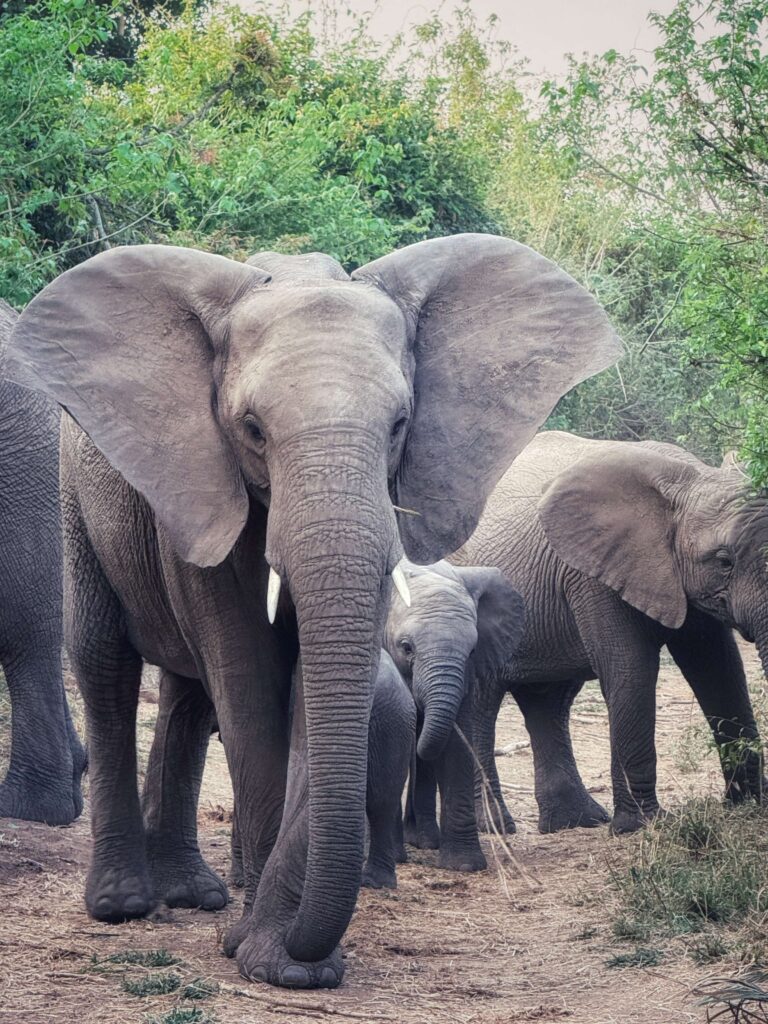
Hours later, with the sun hanging low, I reach the gate to the Makuleke Contractual Park — that remote tri-border region where South Africa meets Zimbabwe and Mozambique, and between them lies nothing but pure wilderness.
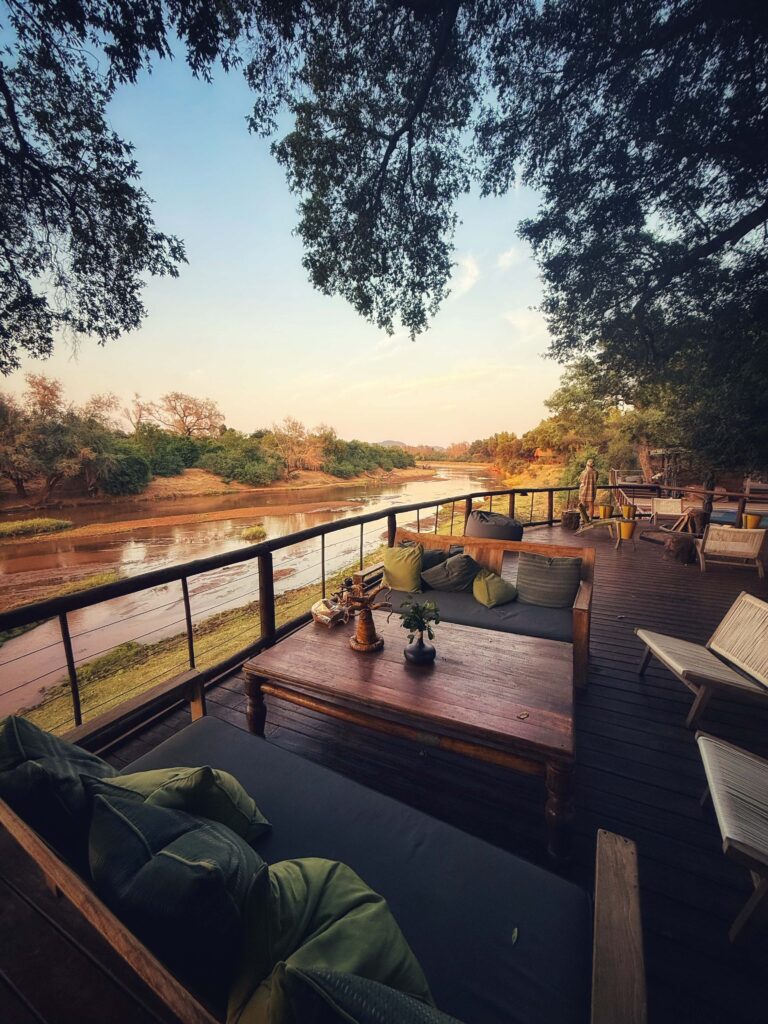
And there, along the banks of the Luvuvhu River, the nineteen tented suites of Pafuri Camp stretch out like silent outposts on the water’s edge. Connected by raised wooden walkways winding through the riverine forest, the camp seems to float above a living world of impalas, warthogs, and nyala antelope. It’s astonishingly green for the dry season — a paradise humming with quiet life.
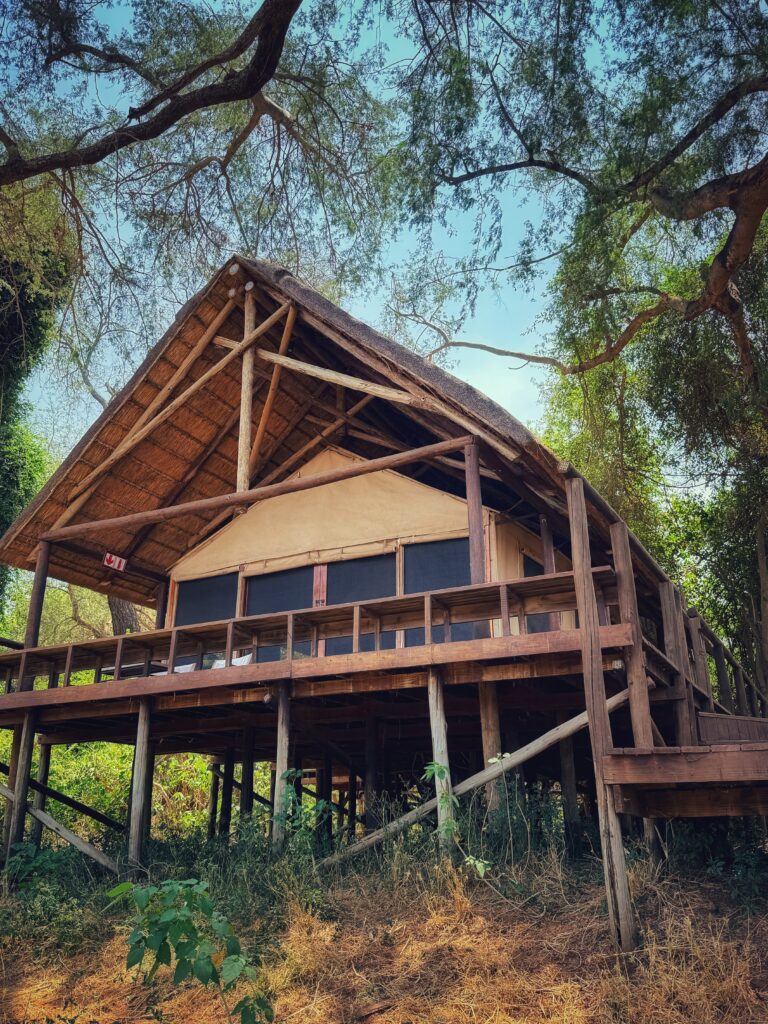
My suite is more than a tent — it’s a light-filled refuge with a private deck, a vast bed, and the constant murmur of the river below.
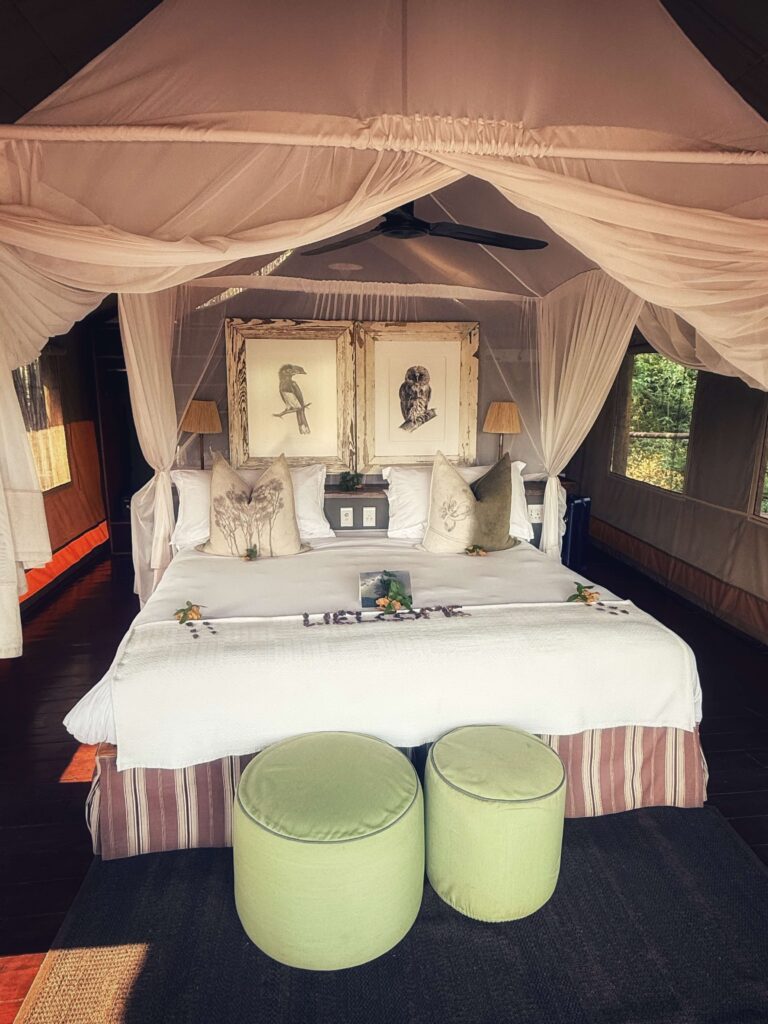
Inside, the style is understated and elegant, complete with en-suite bathroom and an outdoor shower beneath the open sky. Far below, elephants snort in the shallows while a crocodile waits, patient, for the careless. You are one with nature here — with the wilderness, with Africa itself.
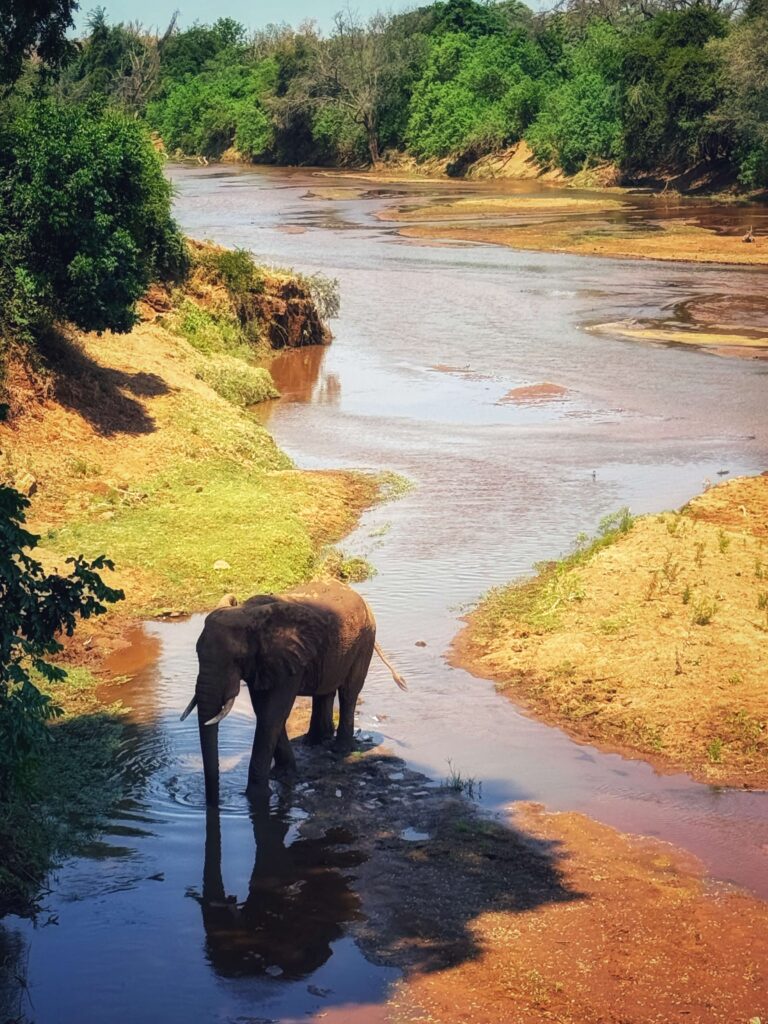
The heart of the camp beats beneath ancient jackalberry trees, where a bush bar, a sprawling deck, and a pool invite you to linger. Mornings begin with coffee and rooibos tea; evenings bring exquisite meals beneath the open sky, while above, the stars erupt into brilliance.
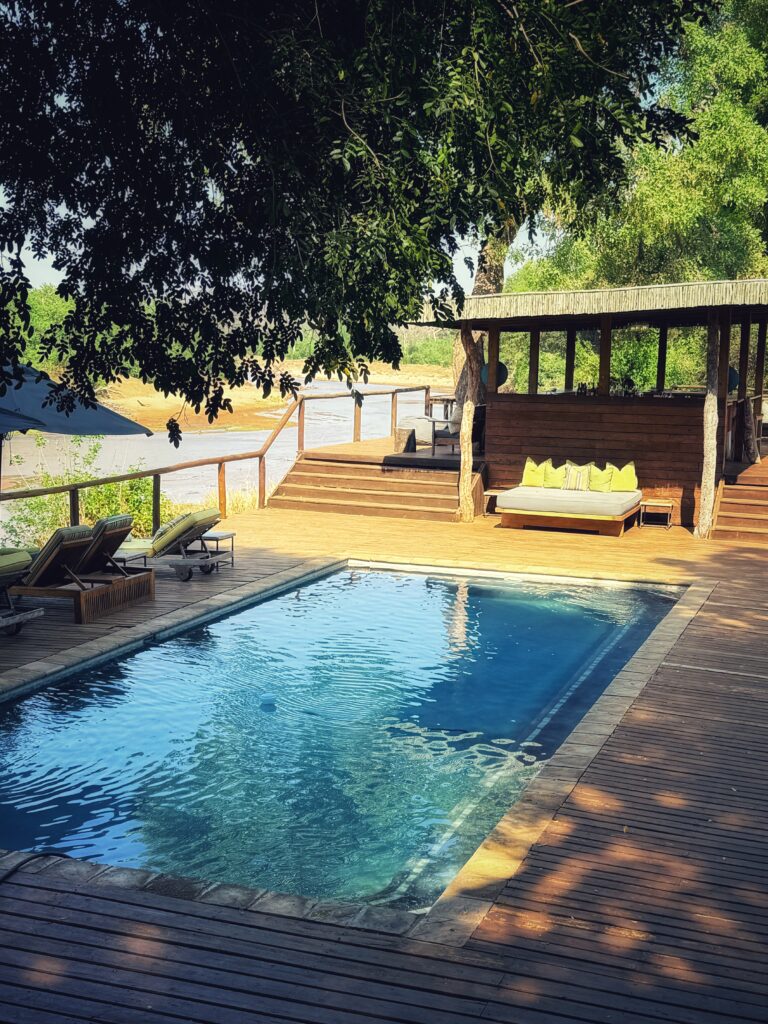
When I arrive, Manager Enos greets me with a firm handshake and a warm smile.
“Tomorrow we start early,” he says. “The bush shows its true face in the first light of day.” Twice a day, safaris await — some by open vehicle, others on foot — led by guides who read the land like an open book and speak of plants as if they were old friends.
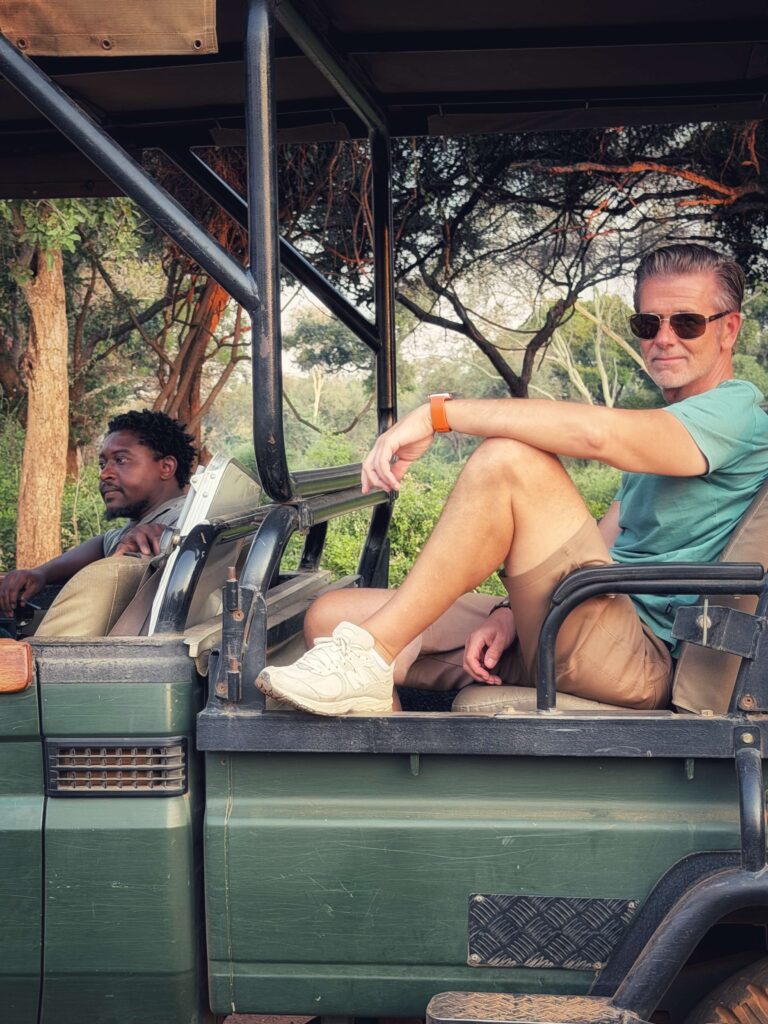
Each outing leads to a new corner of the park — a land without fences, seamlessly linked to Kruger National Park. I already know: the next few days will show me an Africa I’ve never seen before — not only with my eyes, but with all my senses.
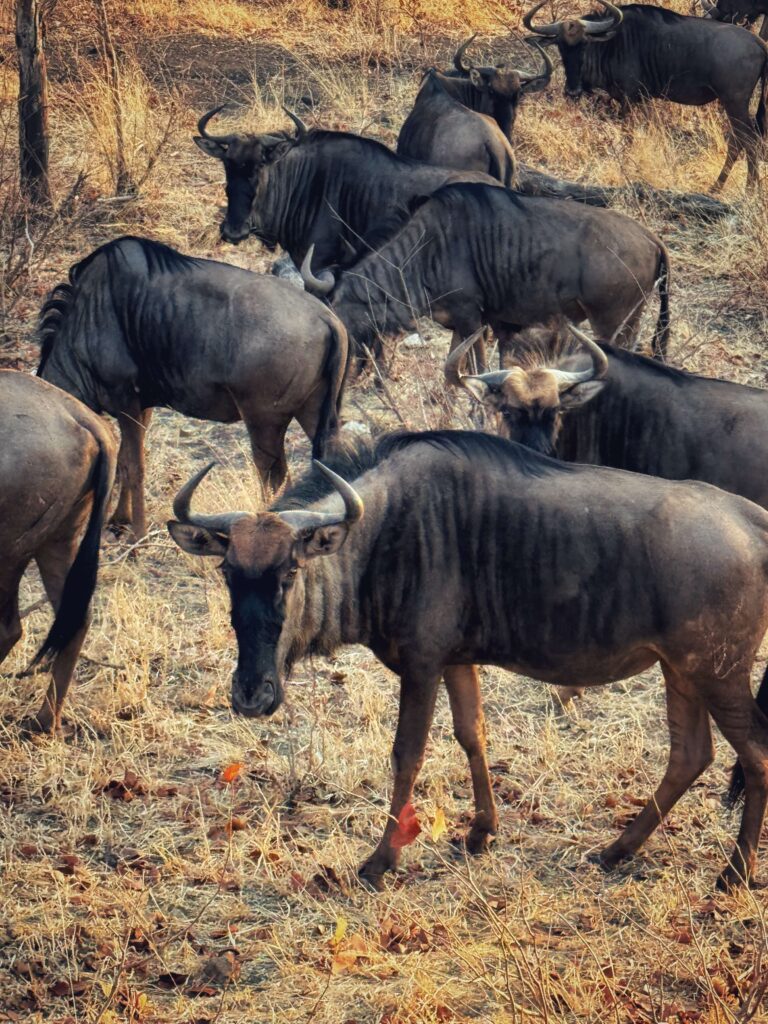
Yet the wilderness has its own laws. What feels like an easy stroll over wooden walkways in daylight — accompanied by the shimmer of heat and the songs of birds — becomes an adventure once darkness falls. Then, a guide escorts each guest safely back to their tent.
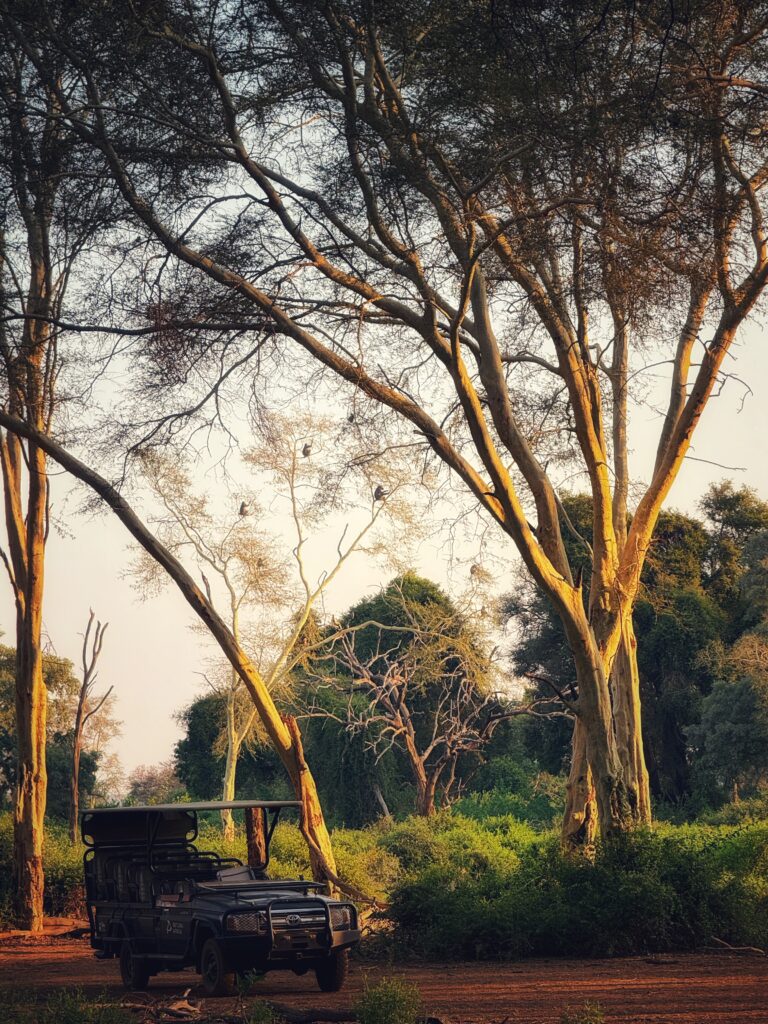
Hour by hour, you sink deeper into the scene. You listen. You watch — and are watched. Soon we venture out to the ancient baobab trees, to the haunting fever tree forests, and to waterholes where flamingos stand like rose-colored reflections in the dusk.
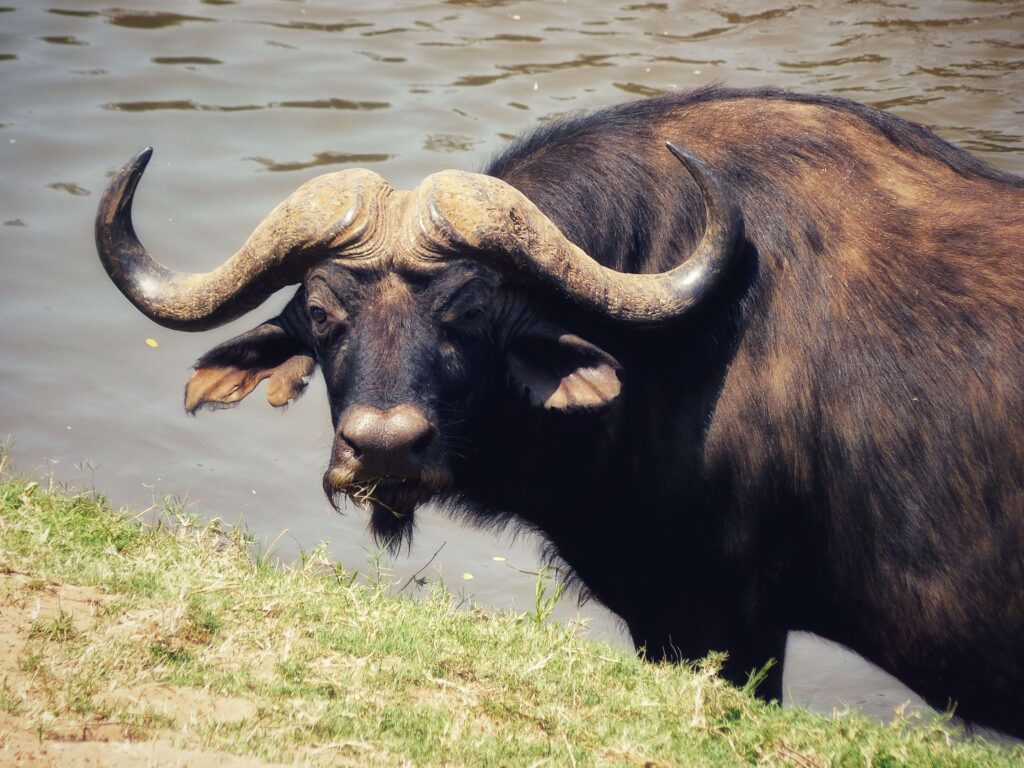
Herds of zebra and impala pass silently as I sip a glass of chilled white wine. If not for the distant call of a hyena or the warning cry of a monkey, one might believe paradise had been found. But at night, Africa shows its true face — what feels peaceful by day becomes a wild, unbridled world.
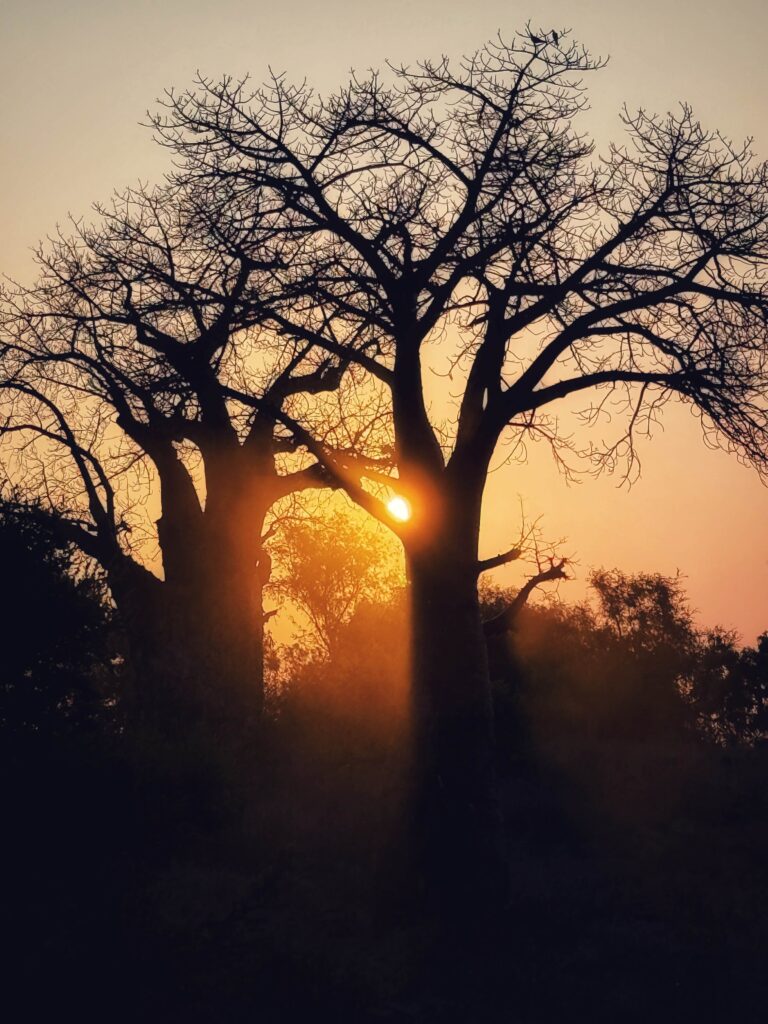
Before our bushwalk, the guide loads his rifle — the metallic click echoing like a soft drumbeat through the stillness. “You never know,” he says with a smile, and we follow single file through the riverside bush. Never have I felt closer to the heart of Africa — a landscape that feels like something between Avatar and the Garden of Eden.
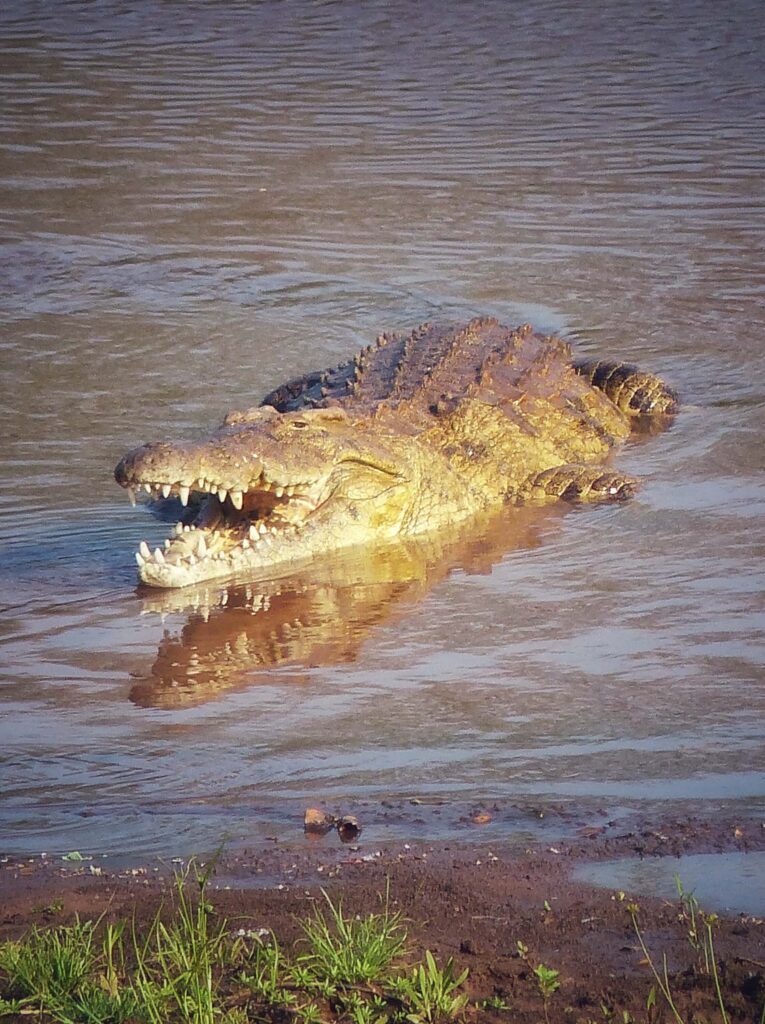
The next day, our guide Hlahla leads us to his favorite places: To the lookout over the mighty Lanner Gorge, where the wind tastes of wilderness and “bush coffee” — coffee laced with Amarula — warms the soul.
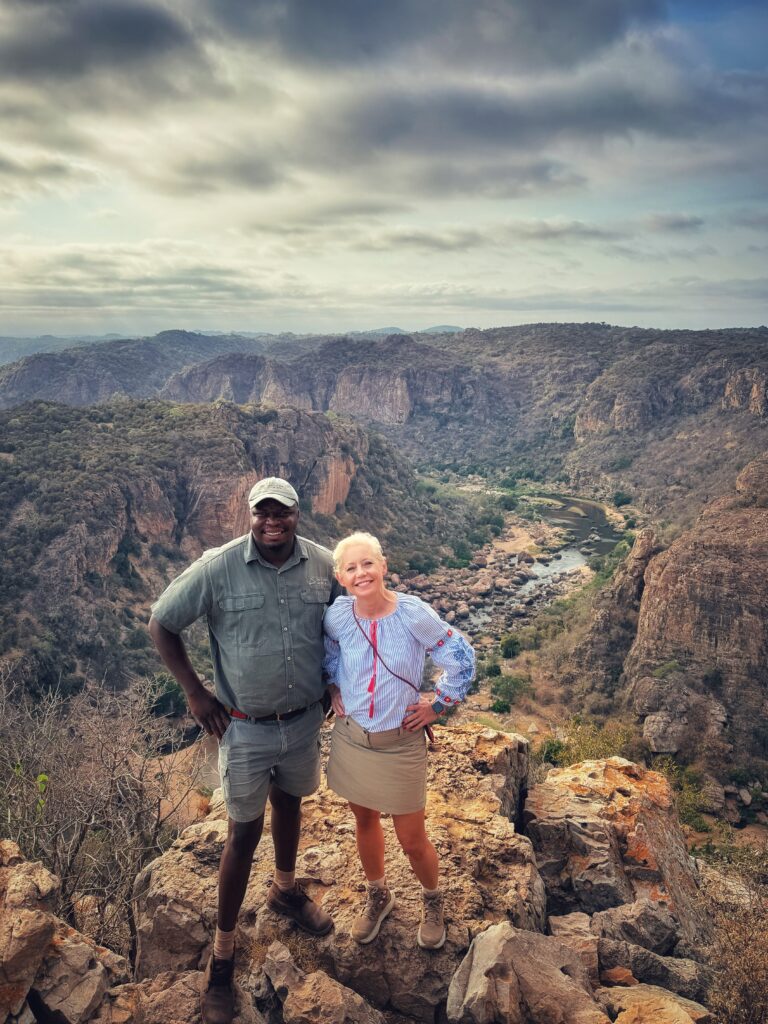
Later, we stand at the banks of the Limpopo River, listening to rustles in the thicket, watching herds of elephants move by the hundreds through the forests, buffalo eyeing us curiously, and a porcupine slipping away into the dark.
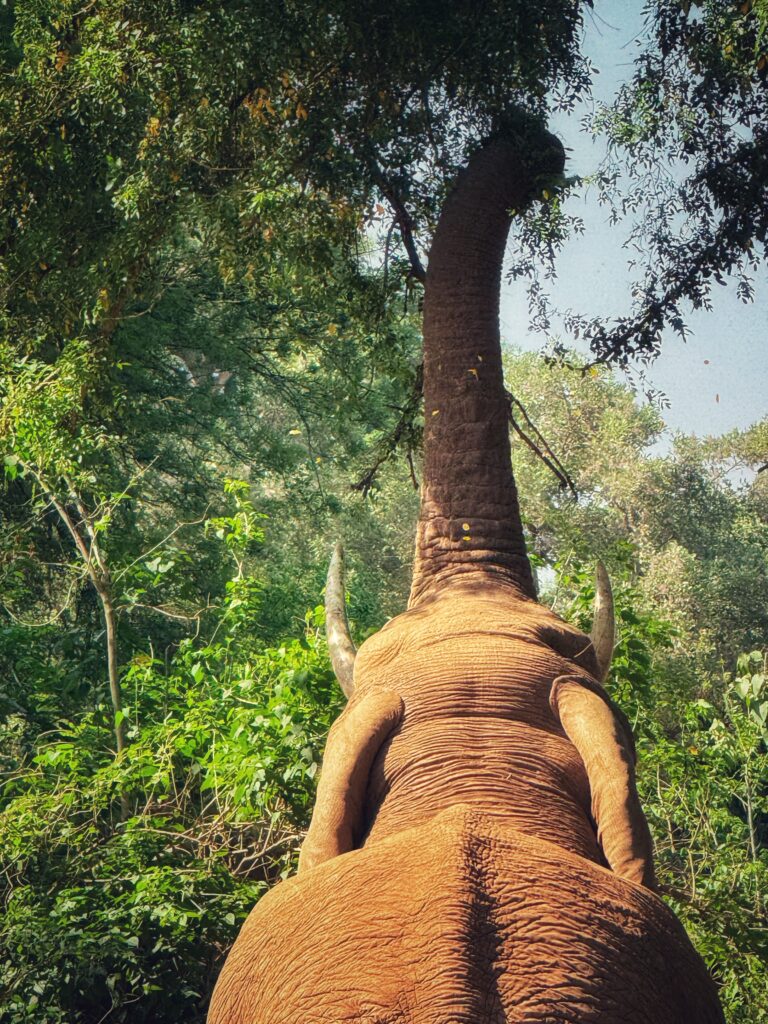
Rarely have I seen so much wildlife in a single day — and never have I felt so far removed from anything resembling routine or civilization.
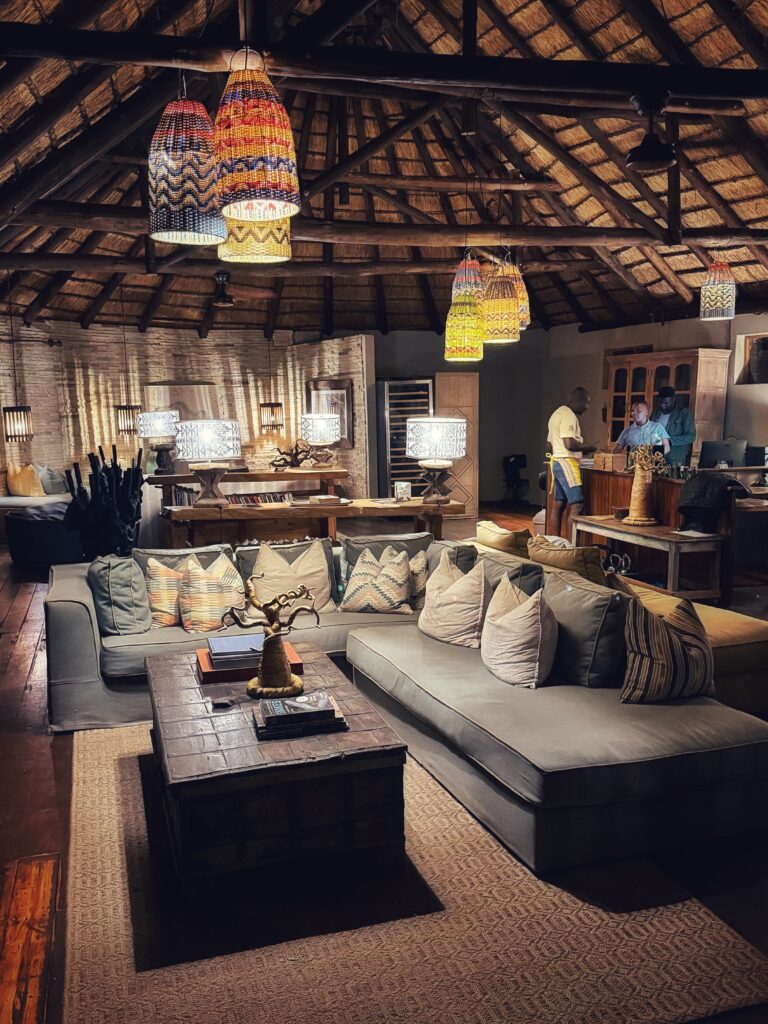
Back at the Pafuri Camp, there’s hardly time to take it all in before the team — ninety-five percent from the local Makuleke community — welcomes us to dinner on the deck. Crispy pork belly with sweet potatoes, a cold Windhoek Lager, and later, a glass of Cabernet. The perfect close to a day that feels like a love letter to an entire continent.
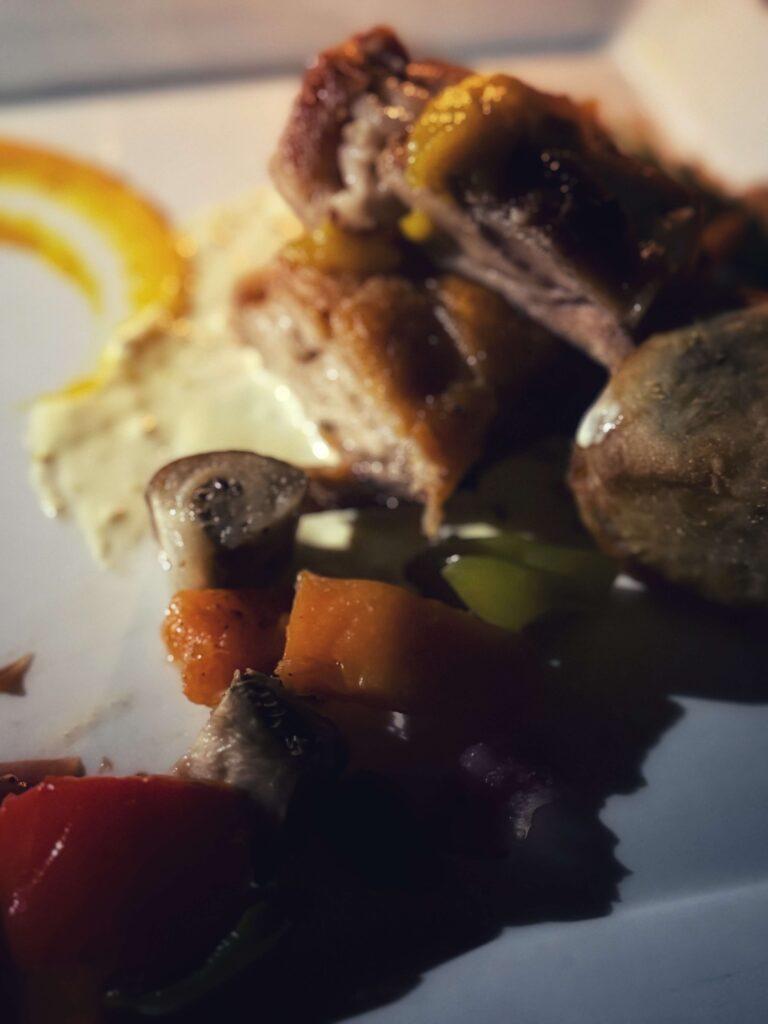
Time in paradise is finite — as life itself is. But sometimes, you can cheat it a little. So I postpone my departure by a few hours and smile at Hlahla. “Take me back to the Fever Tree Forest,” I say.
“To where the elephants graze peacefully among the tall grasses, and the call of the birds is louder than any cry.”
